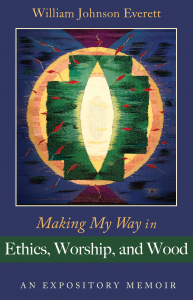In the midst of the inanities of our present political discourse two terms continually return as my filters for the vapid media verbiage: “class conflict” and “common good.” First, “class conflict.” In spite of how much politicians and commentators want to avoid the term, it is clear that we are in the midst of an enormous struggle between those who control capital and those who have only their labor to sell on the market. The latter includes not only untrained manual workers, but the educated middle class and service workers as well. The income gap is increasing, Wall Street continues to bloat as small businesses go belly up, and the middle class is shrinking. We may not have the old definitions of class, since the nature of work and wealth has changed, but the struggle remains much the same as Marx found it 160 years ago. Moreover, in America our sight is often clouded up by the signal luck and achievements of individuals or by the ostentatious consumption of status symbols without the wealth to back them.
The legal and governmental structures for constraining the avarice of the rich and the suffering of the poor are being attacked and undermined, whether it is health care, consumer protection, financial responsibility or environmental sustainability. While the terms of public debate get framed in terms of raising or lowering taxes, governmental size, or “freedom” and “regulation,” our underlying problem is lost – that we do not share a conception of the common good by which to measure public policy and private action. What if, for one week, every politician had to give a one-paragraph definition of the common good to measure her or his work? What would it look like?
For openers, I would propose that the Common Good be considered as the goods everyone must have in order to sustain a community. Among them are a healthy environment of clean air and water, education for its members so they can contribute to their communities, dependable and fair rule of law, conventions for truthful contracts and exchanges, basic health care to enable everyone to participate in work and public life to the extent of their abilities, means of safe transportation and open communication, and provision for the daily safety of the community’s inhabitants. There are, in addition to these, the public goods of free participation in public life, of representative and responsive government, and protection from tyrannies of wealth or power that are also intrinsic, I believe, to a proper conception of the common good.
I would like to hear what your list would be. What list would you like politicians of all stripes — R, D, T, and S — to subscribe to? What is your conception of the common good?







 Red Clay, Blood River
Red Clay, Blood River
Thank you to the Stevens.
I think that John Rawls also has what I remember as the “maxi-min rule,” which requires that a change in distribution benefit the least advantaged. I think he stops short, however, at defining a “thick theory of the good” that requires a certain minimum threshold of goods that everyone should have (goods, not rights). Maybe one of you can refresh me on that point. In any case, our rights-oriented culture tends to keep us from talking about the good.
Thanks for your reflections as we try to process the all-too-familiar shock of violence as the crazy “right to guns” overwhelms not only our right to life and security but the good of civil life.
Bill, I like your attention to class. Class often gets ignored in the attention given to the important issues of race and gender. Yet class contributes to the suffering in the caused by the injustice in those areas. Along with the references above to jobs, I would want to be explicit in saying a job should provide enough to support oneself and one’s dependents. Along with that, the worker should be able to participate in the decisions and ideally in the ownership of one’s workplace. The goods in this area are whatever allows one to participate fully in the economic community.
Stephen Mott
Bill:
Somewhat along the same line of thought, John Rawls’ Distributive Justice theory could only take place in a world that embraces a value in the common good.
I think I would reframe his comment that “The greatest goods should be distributed to those with the least abilty to achieve such on their own.” … to read, ‘For the sake of the common good for all peoples, the ‘advantaged’ must look to ways to share what they have with those who have not been so fortunate.
They would thereby contribute to the conditions in which those less fortunate would have at least access to the same goods that promote health and meaningful life.
Such opportunties would allow the poor,also too to contribute to the common good and welfare of all people.
There is a story in the Book of Buddah that tells about a man who receives a knock at his door and discovers a beautiful woman who identifies herself as the ‘goddess of wealth’ and she had been summoned to come to live with him.
He was delighted as we all would be until a day or so later, he received another knock and was greeted by a most unattractive woman who claimed to be the ‘goddess of poverty’. She informed the man that she had also been summoned to come and live with him.
When the man insisted that she was not welcome, she interrupted and added, the woman who arrived a few days earlier was actually her sister and where ever her sister lives she must also dwell.
As the man pushed her from his home and closed the door, he turned to discover the goddess of wealth also had gone.
Buddha’s message was clear, poverty and weath must always be aware of each other and share commonly in a balance of goods for the welfare of the whole, hence another approach to the meaning of the ‘common good’ I believe.
Not a simple solution but a starting point for dialogue about how no group or individual can truly live abundantantly when any one or group of people are bound by conditions that prevent them from seeking the same.
There is only one Okios, you might add, and we who share it will do so to the mutual benefit of all or to the degredation of all. The bottom line,there can be ‘no good’ unless it is a ‘common good’.
Steve Overall
Thanks, Elaine! You are pointing to the link between the public good and the common good that needs to support it, namely a humane structuring of work. The more we believe in the universality of that public good of participation, the more we need to shape the common good to that end.
Hi Dad,
I really liked this. One thing I would add to the list of the common good is that people have enough free time to engage in the public sphere and to maintain meaningful interpersonal relationships.